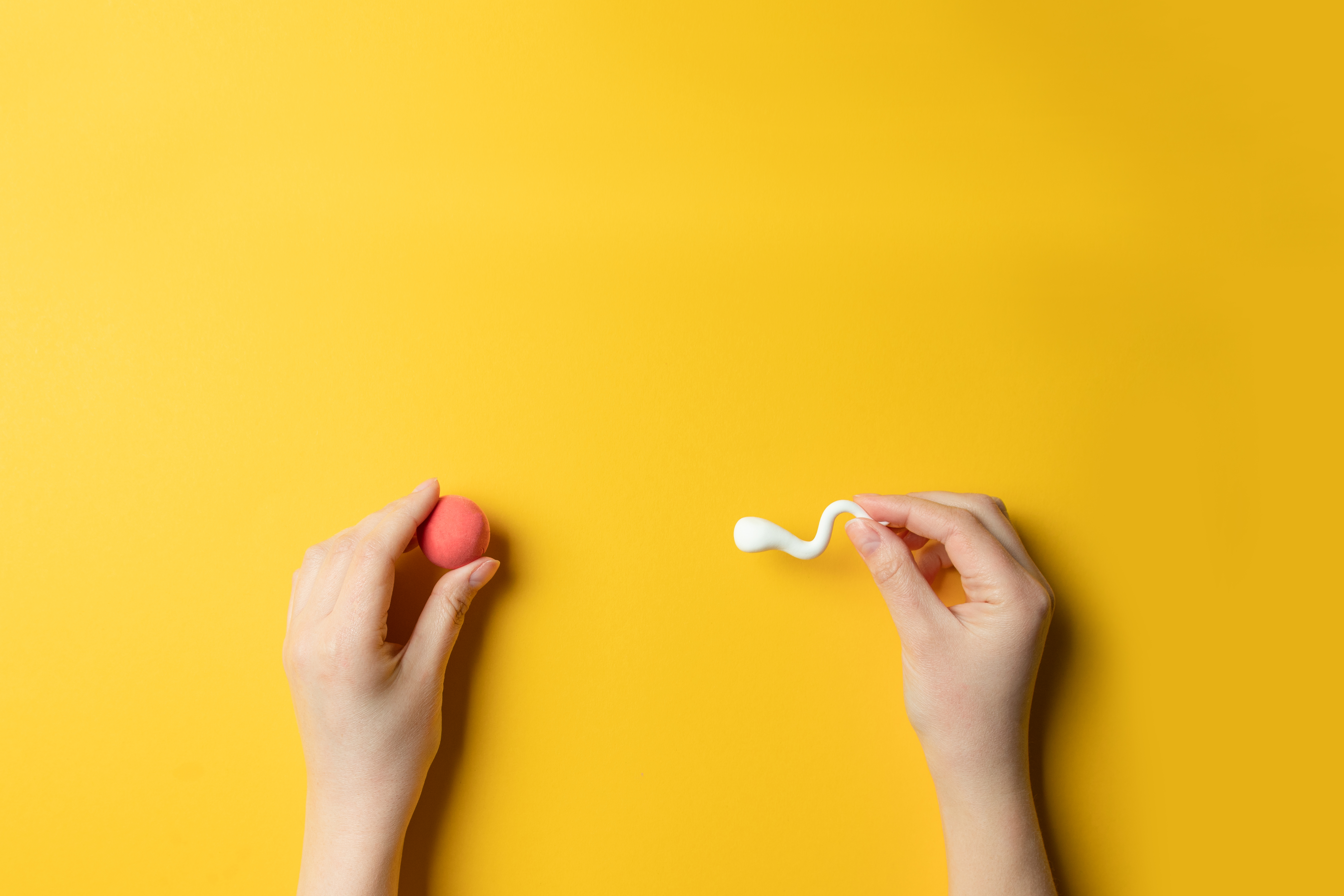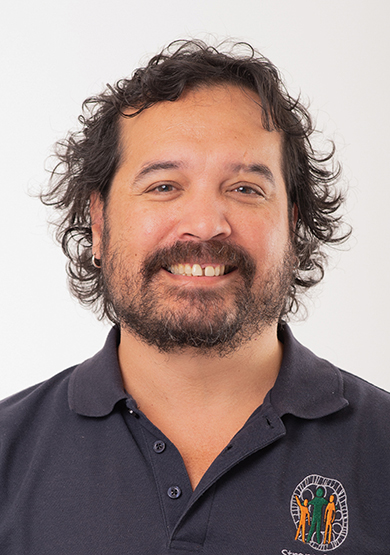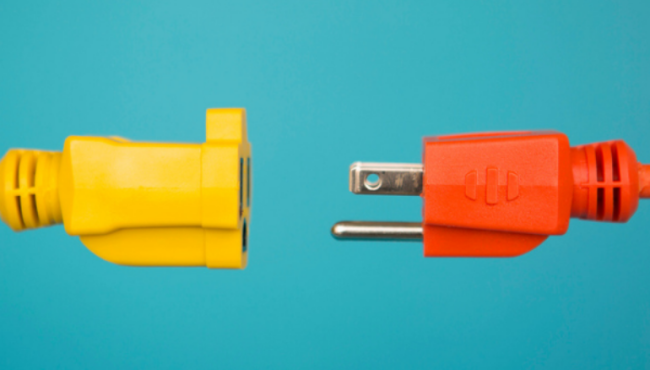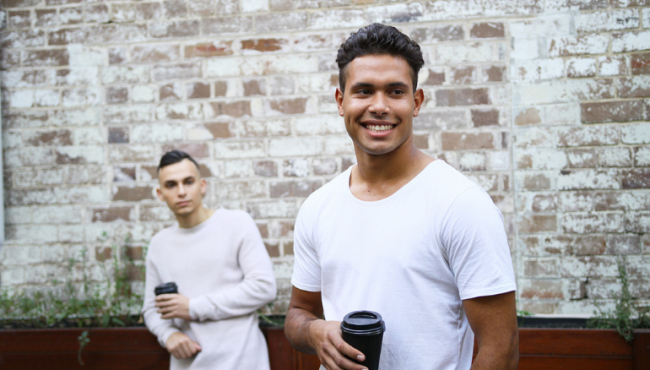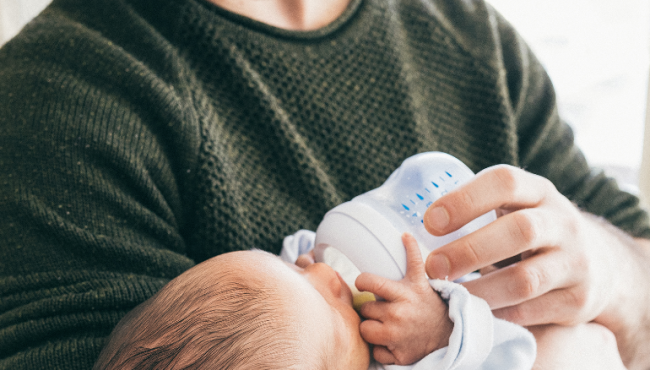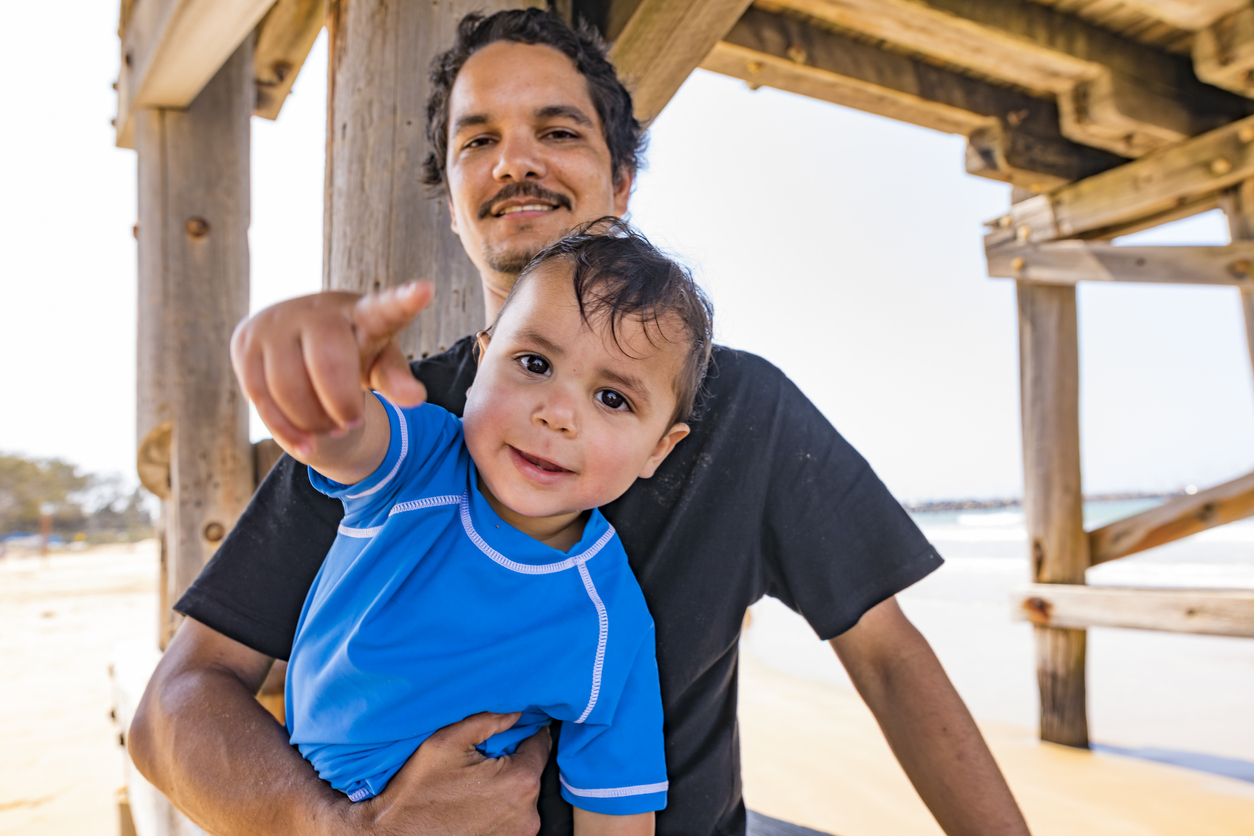
The moment a soon-to-be father comes in contact with the maternal and early childhood space, his interactions and initial experiences can potentially set off a chain of events leading to either positive or negative outcomes, for the entire family. As a health professional, your engagement with a soon-to-be father is critically important to his, his family’s, and his child’s health and wellbeing moving forward through the life course4,5. Your actions play a particularly significant role in the futures of Aboriginal and Torres Strait Islander families1–3.
Let me explain this from a personal perspective.
A young Aboriginal and/or Torres Strait Islander male arrives at his partner’s first antenatal appointment to show his support and his intent to commit to all things necessary for his partner to have a happy and healthy pregnancy; he wants to show leadership6. The couple go to the reception desk, and the person behind the counter checks them in and asks them to be seated until the doctor calls them.
The next few minutes are critical.
The coffee table is stacked with women’s magazines and the posters throughout the waiting room are clearly focused on young mums and mums-to-be. He is the only male in the waiting room. Within moments, the soon-to-be father feels uncomfortable, isolated, and alone – this is not good. A circuit breaker is required.
Before I continue, I need to be clear here. This scenario is not unique to Aboriginal and Torres Strait Islander fathers. This is a scenario faced daily by most fathers in antenatal waiting rooms (and for the most part, primary health care services) across the country7–9. Providing appropriate support to ALL fathers, should be central to the way maternal and early childhood services and health professionals engage with prospective fathers3,7,8,10.
The partner’s name is called, and they both get ushered away to a private room for the antenatal check-up. Whilst in that room, the health professional speaks to the pregnant female, mostly ignoring the soon-to-be father except for the odd smile and witty comment in his direction. These ‘witty’ and often condescending comments that usually project how a father should do this or should be doing that, even in jest, can leave disdain in the mind of the soon-to-be father11.
The health professional and his pregnant partner speak about what is occurring at this particular stage of the pregnancy and what may occur in the next stage. Other discussions may include how important it is for pregnant women to maintain light exercise, recommendations about folate tablets and a list of things to avoid/abstain from such as alcohol and foods at high risk of listeria, such as soft cheeses. With sideways glances toward the male partner, the health professional talks about the importance of a smoke-free environment and reducing stress.
During this appointment, the health professional hasn’t taken a moment to appreciate the effort required from the soon-to-be father to be present in a foreign, uncomfortable environment3 whilst mostly being ignored6,7,12, nor have they considered what information and support he may require to better support his partner and his child. This encounter has not prepared him to be a supportive father10,13,14.
Aboriginal and Torres Strait Islander men (not unlike non-Indigenous men) are known under-utilisers of primary health care services.9 So, when men make the effort to attend health services, not for themselves but to support their loved ones, health professionals need to do more to make them comfortable, acknowledged, accepted and understood1,5,6. Without this support for the soon-to-be father, the outcome can be detrimental to all concerned7,11.
You see, now this negative experience means the soon-to-be father doesn’t want to attend any more appointments3. He was anxious before he walked in, and his experience has made the whole thing so uncomfortable that he makes excuses to not attend upcoming appointments. This puts the relationship under stress as his pregnant partner is frustrated with his nonattendance and feels as though he doesn’t care. Her family and friends (and some of his) pile on, viewing the new dad-to-be as unsupportive and non-committal. Before you know it, and most disappointingly, what started so positively has resulted in stress for all parties involved. This will usually continue throughout the pregnancy and early years of the child – something so easily avoided.
On the other side of the coin, health professionals who encourage, support and provide an environment that includes fathers and values their involvement, enable the father to support his partner accordingly6,7,12. When Aboriginal and Torres Strait Islander men encounter health systems for themselves or in support of their loved ones, services and health professionals need to embrace this opportunity to provide a positive experience, which in turn can have a positive impact on him, his family and ultimately the Aboriginal and Torres Strait Islander population more broadly6,16.
This is not a boohoo, poor fella me, look how hard the male has it during pregnancy piece – not even close. What I have composed here is a demonstration of how your actions impact our future. You see, in both scenarios, the soon-to-be father wants to engage, wants to step up and do the right thing for his partner and his unborn child, but only in one scenario is he appropriately supported to do so. I want to encourage you, as a health professional in the maternal and early childhood realm, to better understand the impact your behaviour has on an Aboriginal or Torres Strait Islander father and his family, today and into the future5,6,17,18.
Education for health professionals is key5. The impact of past childhood traumatic events experienced by Aboriginal and Torres Strait Islander families by the legacy of colonisation and forced child removal practices must also be considered in providing adequate and effective services to parents. Understanding best-practice, and using trauma-informed and healing methods, in supporting fathers to be respected and resilient in their role can provide critical and positive outcomes for wellbeing for both parents and child(ren).18–20 Maternal and early childhood health professionals and services must provide culturally appropriate and acceptable support to Aboriginal and Torres Strait Islander fathers3,5,6,17.
Acknowledging the presence and respecting the purpose of the father-to-be during pregnancy care, will provide him with a sense of worth and commitment toward his partner and family. Furthermore, if we are truly to support ALL men throughout the pregnancy experience for the benefit of the whole family, it may be time to consider rebranding Women’s and Children’s Hospitals to something more inclusive and supportive of the whole family. A Family Hospital sounds inclusive of ALL parents3,5,6,8,15,17.
So, on your way in to work today, take a minute to contemplate how your interactions with an Aboriginal and Torres Strait Islander father today can impact his family into the future.
References
1. Canuto K, Harfield SG, Canuto KJ, Brown A. Aboriginal and Torres Strait Islander men and parenting: a scoping review. Aust J Prim Health. 2020;26(1):1. doi:10.1071/PY19106
2. Shepherd RW and C. Strengthening Aboriginal family functioning: What works and why? Child Family Community Australia. Published February 15, 2008. Accessed April 21, 2022. https://aifs.gov.au/cfca/publications/strengthening-aboriginal-family-functioning-what-works-and
3. Reilly L, Rees S. Fatherhood in Australian Aboriginal and Torres Strait Islander communities: An Examination of Barriers and Opportunities to Strengthen the Male Parenting Role. Am J Mens Health. 2018;12(2):420-430. doi:10.1177/1557988317735928
4. Adams M. Raising the Profile of Aboriginal and Torres Strait Islander Men’s Health: An Indigenous Man’s Perspective. Aust Aborig Stud Canberra. (2):68-74. doi:10.3316/informit.429862054139839
5. Wise S, Soriano G, Berlyn C. Engaging Fathers in Child and Family Services: Participation, Perceptions and Good Practice. SSRN Electron J. 2008;80. doi:10.2139/ssrn.1728594
6. Carlin E, Cox Z, Spry E, Monahan C, Marley JV, Atkinson D. “When I got the news”: Aboriginal fathers in the Kimberley region yarning about their experience of the antenatal period. Health Promot J Austr. 2021;32(3):513-522. doi:10.1002/hpja.375
7. Baldwin S, Bick D. Mental health of first time fathers - it’s time to put evidence into practice. JBI Database Syst Rev Implement Rep. 2018;16(11):2064-2065. doi:10.11124/JBISRIR-2017-003983
8. McKellar L, Pincombe J, Henderson A. Enhancing Fathers’ Educational Experiences During the Early Postnatal Period. J Perinat Educ. 2008;17(4):12-20. doi:10.1624/105812408X364134
9. Canuto K, Brown A, Wittert G, Harfield S. Understanding the utilization of primary health care services by Indigenous men: a systematic review. BMC Public Health. 2018;18(1):1198. doi:10.1186/s12889-018-6093-2
10. Steen M, Downe S, Bamford N, Edozien L. Not-patient and not-visitor: A metasynthesis fathers’ encounters with pregnancy, birth and maternity care. Midwifery. 2012;28(4):422-431. doi:10.1016/j.midw.2011.06.009
11. Wright C, Geraghty S. Are male partners of pregnant women treated negatively in maternity care? Br J Midwifery. 2017;25(10):7.
12. Williams RA, Dheensa S, Metcalfe A. Men’s involvement in antenatal screening: A qualitative pilot study using e-mail. Midwifery. 2011;27(6):861-866. doi:10.1016/j.midw.2010.09.004
13. Panter-Brick C, Burgess A, Eggerman M, McAllister F, Pruett K, Leckman JF. Practitioner review: Engaging fathers--recommendations for a game change in parenting interventions based on a systematic review of the global evidence. J Child Psychol Psychiatry. 2014;55(11):1187-1212. doi:10.1111/jcpp.12280
14. Darwin Z, Galdas P, Hinchliff S, et al. Fathers’ views and experiences of their own mental health during pregnancy and the first postnatal year: a qualitative interview study of men participating in the UK Born and Bred in Yorkshire (BaBY) cohort. BMC Pregnancy Childbirth. 2017;17(1):45. doi:10.1186/s12884-017-1229-4
15. Stuart G, May C, Hammond C. Engaging Aboriginal Fathers. Dev Pract Child Youth Fam Work J. Published online August 2, 2016:4-17.
16. Bernard van Leer Foundation. Annual Report 2014.; 2015. Available at https:// bernardvanleer.org/publications-reports/annual-report-2014/ [Verified 11 January 2019]
17. Stuart G, May C, Hammond C. Engaging Aboriginal fathers. Dev Pract Child Youth Fam Work J. (42):4-17. doi:10.3316/ielapa.241220890134254
18. Chamberlain C, Gee G, Brown SJ, et al. Healing the Past by Nurturing the Future—co-designing perinatal strategies for Aboriginal and Torres Strait Islander parents experiencing complex trauma: framework and protocol for a community-based participatory action research study. BMJ Open. 2019;9(6):e028397. doi:10.1136/bmjopen-2018-028397
19. Chamberlain C, Gee G, Harfield S, et al. Parenting after a history of childhood maltreatment: A scoping review and map of evidence in the perinatal period. PloS One. 2019;14(3):e0213460. doi:10.1371/journal.pone.0213460
20. Graham P, Yaros A, Lowe A, McDaniel M. Nurturing Environments for Boys and Men of Color with Trauma Exposure. Clin Child Fam Psychol Rev. 2017;20. doi:10.1007/s10567-017-0241-6






